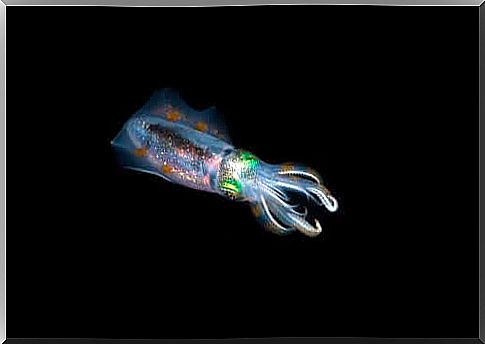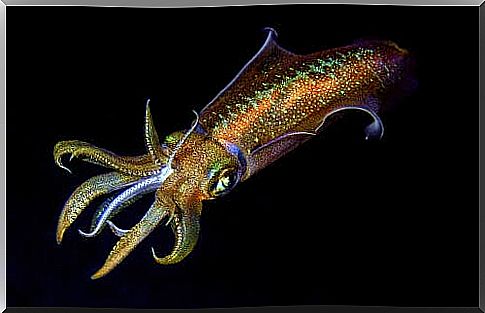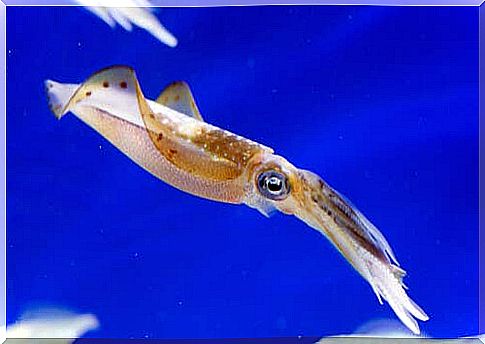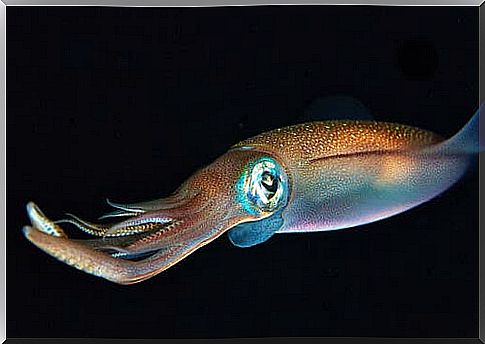The Octopus And Its Genetic Code: Fascinating Discoveries

Cephalopods belong to the Mollusca tribe and there are around 700 different species including the octopus, squid, squid, sepia, and nautilus. They are really extraordinary creatures with some very fascinating properties, such as their ability to camouflage themselves. Some species can shoot jets of ink that they use to disorient their hunters.
In addition, there are species that glow in the deepest depths of the ocean and others, like the octopus, can bend and twist their bodies in the most amazing ways.
Today we want to take a closer look at the octopus’ ability to alter its genetic code. A really fascinating fact!
How can cephalopods do all of these things?
The answer to this question is neural control. For example, they can change their color with the help of pigment cells that are in their coat. These pigments expand or compress in response to muscle contraction controlled by the central nervous system.
Their ability to escape an impending danger very quickly is based on a type of jet propulsion system. They have a system made up of giant motor nerve fibers that control the powerful contractions of the muscles in their mantle. This enables them to shoot a powerful jet of water through the hyponome.

Squid neurons
It is therefore not surprising that neurologists around the world have studied and researched cephalopods for many years. In their research, for example, they discovered that octopuses have such incredible muscle control that they can hide in areas that are only a tenth of their own height.
The scientists also discovered that an octopus has the ability to change its own genetic code. And not only in its cell nucleus, but also in the axons. Axons are long, thin fibers that carry signals to other nerve cells. This study was carried out on the long-finned coastal squid (Doryteuthis pealeii) and provides the first evidence that genetic information can change outside the nucleus of an animal cell.

Why is it so important that the squid can change its genetic code?
First of all, this information is important as it expands our understanding of neural plasticity. Neural plasticity is the ability of the nervous system to change its structure and how it works. This allows an animal to adapt quickly to changes in its environment and this ability is crucial for survival.
Squids are true masters at changing their genetic code. In 2015, the same group of researchers found that squids process messenger RNA (mRNA) many times better than humans.
The messenger RNA is a vital molecule for living things. It transfers the genetic code of the nucleus DNA to the ribosomes, in which proteins are formed. This mRNA is a translation of certain DNA fragments that are “interpreted” by the ribosomes so that they can then form proteins that match the genetic code of the animal.
If the squid can process its mRNA “locally”, it means that these neurons could theoretically adapt the types of proteins produced according to the needs of the respective cells. In addition, this discovery is also important for the future treatment of axon dysfunction. Many neurological disorders in humans are related to this.

Final thoughts
Editing the RNA is a biological process that allows for greater versatility in the expression of the same protein. For survival, the processing of the mRNA is much safer than the processing of the DNA (mutations), as these can be harmful. Changes in RNA can be corrected, but DNA changes are permanent.
There are numerous processes in the animal world that we still do not understand. By observing and examining these processes, we can potentially discover many more solutions to human diseases. As you can see, this research not only serves to expand our knowledge, but also makes a decisive contribution to improving our quality of life.









